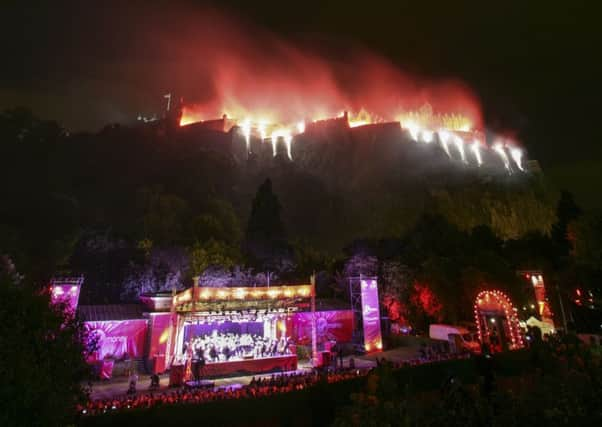Nick Stewart: Edinburgh needs fewer noise complaints


Edinburgh needs fewer noise complaints. But the reason for the reduction shouldn’t be the residents’ lack of confidence in enforcement from authorities, it should be because city centre residents agree that the occasional hubbub of music around them is part of the deal of living in a cultural hub. Many people live in city centres because of the culture on their doorstep, not despite it. The Music Is Audible working group, of which I am a member, has come up with a suggestion to help us all get along.
Council figures bear out an interesting truth: during the Festivals, there is no rise in noise complaints. Inevitable sound leaks from concerts at the castle, not to mention the Festival Fireworks, for which banks of powerful speakers were playing music along Princes Street last week, don’t notably incite the ire of residents. Yet in the months outwith the Festivals, Edinburgh’s music community is expected to celebrate music in silence.
Advertisement
Hide AdAdvertisement
Hide AdAt present, all Edinburgh licensed premises have a condition attached to their licence that says “all music and vocals shall be so controlled to as to be inaudible in neighbouring residential premises”. This is in pursuit of the licensing objective “prevention of public nuisance”.
The current clause means that music being audible to neighbours, however slightly, is a nuisance. Is music necessarily a nuisance? We argue that it’s not, and public health law agrees with us.
We propose that to contravene the terms of their licence, a music venue must have to make an “audible nuisance” rather than simply be audible. Handily, there are guidance notes to the recent Public Health Act that help to define what a nuisance is, and we ask that Licensing Standards Officers (LSOs) be allowed to use these to judge whether a genuine nuisance has been caused.
I spoke to community councils who couldn’t support our proposed change because they didn’t have confidence in enforcement. In other words, the council isn’t able to fix the cause of noise complaints now, so why would they be able to do so with our proposed change in place?
The reason the council can’t halt complaints is that in practice, LSOs don’t manage to achieve inaudibility at all, instead they find a sound level that is acceptable for the complainant to deal with. Council officials still talk about the inaudibility clause as a “gold standard”, but if it’s never attained, then what kind of standard is it at all?
If venues break the terms of their licences by fulfilling their primary role of playing music, how can the law be said to be working? LSOs seeking inaudibility face an insurmountable problem: in a highly tenemented, lived-in city centre, “inaudibility” is simply not an attainable standard.
No music venue wants to be a nuisance, but it’s not possible for venues to hermetically sealed from their environs either, and it would be a backwards step to send music venues out into the sticks away from their communities. As the title of the Music Is Audible working group, set up by Edinburgh Council, implies, you can’t have music in silence.
There needs to be a balance between the needs of residents to have quiet enjoyment of their properties, and those who want to enjoy music in the city. That is exactly what our proposed change to the legislation seeks.
• Nick Stewart is owner and manager of Sneaky Pete’s bar in Edinburgh